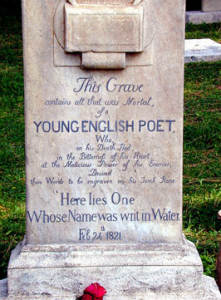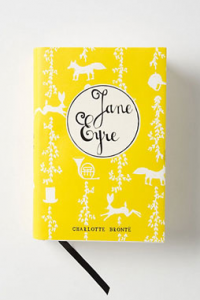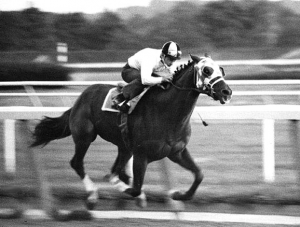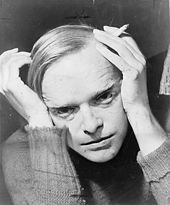The Paris Review's Blog, page 872
November 19, 2012
Win Lovely Gloves with a Brave New Turkey
The enormous room on the ground floor faced towards the north. Cold for all the summer beyond the panes, for all the tropical heat of the room itself, a harsh thin light glared through the windows, hungrily seeking some draped lay figure, some pallid shape of academic goose-flesh, but finding only the glass and nickel and bleakly shining porcelain of a laboratory. Wintriness responded to wintriness. The overalls of the workers were white, their hands gloved with a pale corpse-coloured rubber. The light was frozen, dead, a ghost. Only from the yellow barrels of the microscopes did it borrow a certain rich and living substance, lying along the polished tubes like butter, streak after luscious streak in long recession down the work tables. —Brave New World
As should be perfectly obvious from the above quote, we are giving away a pair of cozy, woolen Etre gloves (made by one of the last British glove manufacturers) to the person who can make the best, most apt Thanksgiving turkey from Aldous Huxley’s handprint. Will your turkey be chrome yellow? Savage? Dystopian? Psychedelic? Whatever your motif, send your turkey, be it photoshopped, collaged and scanned, handpainted, to contests@theparisreview.org by December 1st.
“repeat, repeat, repeat; revise, revise, revise”: Poets Mourning Poets
“I used to want to live / to avoid your elegy,” Robert Lowell confessed in “For John Berryman.”
The death of one poet is an extraordinary occasion for another poet. It is like the day a stonemason dies and another has to carve his headstone. Like a rough ashlar, the elegy sits waiting to be shaped into a memorial for the one who is gone. The death of a poet so great as Jack Gilbert last week pains, but also promises remembrances fitting the one who died.
Gilbert devoted most of his elegies to his wife, Michiko Nogami, but poets have forever elegized one another. We can trace the canon through the poems that poets have written to mourn their own: Henri Cole grieving Elizabeth Bishop; Bishop remembering Robert Lowell; Lowell lamenting the death of John Berryman; Berryman longing for Roethke, Jarrell, Hughes, Plath, Schwartz, and William Carlos Williams; W.H. Auden elegizing Yeats; Shelley bemoaning the loss of Keats; all the way back to Ovid mourning Orpheus.
Beautiful Books, and Other News
Stationer Mr. Boddington’s Studio does a series of whimsical Penguin Classics covers.
Raymond Carver’s OkCupid profile, as edited by Gordon Lish.
“On the Kindle, each screen shot floats in space, isolated from the previous or subsequent ones, an effect that left my memory of the book weirdly nebulous.” The challenges of reviewing on the Kindle.
Five books on anxiety.
“Mr. Roth hasn’t given up writing entirely. He is collaborating on a novella, via e-mail, with the 8-year-old daughter of a former girlfriend.”
November 16, 2012
Happy Dagur Islenskrar Tungu!
Jónas Hallgrímsson. Self-portrait (1845). Pen and ink
Today is Icelandic Language Day (literally, “day of the Icelandic tongue”), a festival designed to coincide with the birthday of Jónas Hallgrímsson.
As well as an accomplished poet, author, and naturalist, Hallgrímsson was a committed Icelandic nationalist and founder of the journal Fjölnir. He died in 1844 at only thirty-seven, but to this day is considered one of Iceland’s most beloved poets.
It is said that Hallgrímsson’s poetry, which dealt often with Iceland, its landscapes, and its people, resists easy translation. Nevertheless, even in the following translation, the themes come through.
A Toast to Iceland
Our land of lakes forever fair
below blue mountain summits,
of swans, of salmon leaping where
the silver water plummets,
of glaciers swelling broad and bare
above earth's fiery sinews —
the Lord pour out his largess there
as long as earth continues!
In 1945, Hallgrímsson was at the center of a rather bizarre controversy. A fan, one Sigurjón Pétursson, spearheaded a campaign to move the poet’s body from Copenhagen, where he died, to his childhood home of Öxnadalur, Iceland. The Icelandic government disagreed: they wanted him reburied at the national burial ground at Þingvellir. Undaunted, Pétursson raised the funds himself, supervised the excavation (which involved digging up four other bodies), and escorted the coffin, defiantly, to Öxnadalur. Once there, however, he couldn’t get any priest to perform the service, and the coffin stood in the church for a week before the government had it moved to Þingvellir, where it was buried and remains to this day.
The poet’s legacy, however, is a happier one. Every year, the Jónas Hallgrímsson Award is given to someone who has contributed to the language.
I Opened the Door
 At last I had begun writing my long-planned book about Captain Ahab’s doomed enterprise in Moby-Dick—about Robur’s doomed enterprise in Verne’s Maître du Monde—about the doomed enterprise of Doctor Hans Reinhardt from the 1979 science-fiction film The Black Hole.
At last I had begun writing my long-planned book about Captain Ahab’s doomed enterprise in Moby-Dick—about Robur’s doomed enterprise in Verne’s Maître du Monde—about the doomed enterprise of Doctor Hans Reinhardt from the 1979 science-fiction film The Black Hole.
Eleven thousand words in, and may God grant that I learn it sooner next time or else not at all, I understood with blinding clarity that my book itself was another doomed enterprise.
As Don Quixote said: y yo hasta agora no sé lo que conquisto a fuerza de mis trabajos—I do not even know what I am conquering.
“Master of the world”! Robur-le-Conquérant!—what a delusion! what a farce! The quintessence of megalomania: Richard Wagner named his dog Robur.
Far-Out
We at the Review are big fans of the work of Tomi Ungerer, so we were delighted to hear about this documentary on the idiosyncratic illustrator. As the trailer and this interview with the director show, it promises to be memorable.
What We’re Loving: Secretariat, Vonnegut, Law
To my own amazement I have been reading a handbook entitled The Trial Lawyer: What It Takes To Win, by one David Berg, Esquire. For a manual published by the American Bar Association, The Trial Lawyer is extremely entertaining. (Berg on cross-examination: “If you are funny, be funny. If you are smart, be smart. If you are neither, consider the judiciary.”) My favorite chapter title is “Voir Diring for Dollars.” Even though you may expect never to conduct a voir dire, or depose a witness, or file a motion, Berg tells you how to do these things in such plain English that you feel you could, if the need arose. He even makes it sound like fun. I just wish the ABA had provided a brown paper wrapper... —Lorin Stein
With Armistice Day remembered this week, I’ve been rereading one of my favorite war poets: Rupert Brooke. That said, while he is now best known for his World War I sonnets, I prefer his earlier writing, which reveals a more cynical, vitriolic writer.Read More »
Truman Capote Manuscript Is Discovered, and Other News
An unfinished Truman Capote manuscript is discovered at the New York Public Library.
Cocktail recipes by Hemingway.
Pope Benedict encourages his flock to learn Latin.
Poems in the voice of cats.
Nora Roberts revitalizes her Maryland town.
November 15, 2012
Louise Erdrich Wins NBA for Fiction
We’d like to congratulate Louise Erdrich on her National Book Award for The Round House. The following quote, from her Art of Fiction interview, explores the author’s approach to writing:
I take great pleasure in writing when I get a real voice going and I’m able to follow the voice and the character. It’s like being in a trance state. Once that had happened a few times, I knew I needed to write for the rest of my life. I began to crave the trance state. I would be able to return to the story anytime, and it would play out in front of me, almost effortlessly. Not many of my stories work out that way. Most of my work is simple persistence … But if the trance happens, even though it’s been wonderful, I’m suspicious. It’s like an ecstatic love affair or fling that makes you think, It can’t be this good, it can’t be! And it never is. I always need to go back and reconfigure parts of the voice. So the control is working with the piece after it’s written, finding the end. The title’s always there, the beginning’s always there, sometimes I have to wait for the middle, and then I always write way past the end and wind up cutting off two pages.
Where It All Went Wrong
In February, I got an email out of the blue from the director of the Cork International Short Story Festival—the same festival associated with the annual Frank O’Connor Award, worth 25,000 Euros. My first thought: Oh, shit, break out the champagne!
Back on planet earth, I wasn’t even short-listed. But I was being invited to read at the festival, and they would pay my travel expenses, put me up in a nice hotel, and—how could you say no?—provide free gourmet sandwiches for the duration of my time in Cork. Bless the good people programming the festival; in a year when a lot of excellent writers had published story collections, I wasn’t entirely sure why they wanted me to come. Possibly because, in my bio note, I always begin by saying, “Will Boast was born in England and grew up in Ireland and Wisconsin.” I was, in some sense, a local boy. From 1982 to 1986, my family lived in Newcastle West, a small village in County Limerick about an hour and a half drive from Cork. After twenty-five years away, I finally had an excuse to go back.
Coming into Cork, I got my first twinge of homecoming. I didn’t know this city (any childhood memories of visiting Cork are utterly gone), and yet the rolling landscape, the narrow streets, and even the color of the houses seemed already mapped out in my mind. Then I got in a cab and started speaking to the driver. I thought at first he was German, so thick and strange was his accent.
The Paris Review's Blog
- The Paris Review's profile
- 305 followers











